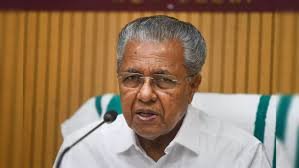By our Special Correspondent
Chennai: Out of a total of the world diabetes patients of 800 million adults living with diabetes, 212 million live in India, according a paper published in the peer-reviewed journal The Lancet , based on a global study.
It recorded over 800 million adults living with diabetes, more than half of it not receiving treatment. Not surprisingly, India had the highest number diabetes in the world. But surprisingly enough the number was nearly 100 million more than the numbers revealed as part of the nation-wide Indian Council of Medical Research (ICMR)-IndiaB study last year.
There are clear indications that the number of people with diabetes were on the increase in India and it was essential to invest in the prevention of diabetes, its treatment and in the prevention of complications was imperative.
The study conducted by the NCD Risk Factor Collaboration (NCD-RisC) along with the World Health Organization(WHO) used data from over 140 million (18 plus years) culled from more than 1,000 studies in different countries.
According to the study, the total number of adults living with either Type 1 or Type 2 diabetes in the world has surpassed 800 million, over a quarter (212 million) live in India with another 148 million in China.
“Our study highlights widening global inequalities in diabetes, with treatment rates stagnating in many low and middle-income countries, where numbers adult with diabetes are drastically increasing. This is especially concerning as people with diabetes tend to be younger in low-income countries and in the absence of effective treatment, are at risk of life-long complications”, Senior Author Majid Ezzati, of the Imperial College, London, said.
“It is very clear that diabetes has been on the ascending limb in India for two decades. In this context, we need to undertake a war-like effort using mass media to spread awareness about nutrition, physical activity(and) enacting more legal provisions to regulate (carbohydrates) and sugar content in packaged food. We must educate women since they are prone to obesity post-pregnancy, and have a heightened risk at menopause. A long-term vision for 10 years is required, with a dedicated task force assigned to the”, Anoop Mishra, Chairperson, Fortis CDOC Hospital and Diabetes and Allied Sciences, said.
“Our findings highlight the need to see more ambitious policies, especially in lower-income regions of the world, that restrict unhealthy foods, make healthy foods affordable, and improve opportunities to exercise through measures such as subsidies for healthy foods and free, as well as promoting safe places for walking and exercising, including free entrance to public parks and fitness centres,” Anjana Ranjit, President Madras Diabetes Research Foundation, who was involved in the IndiaB study said.




